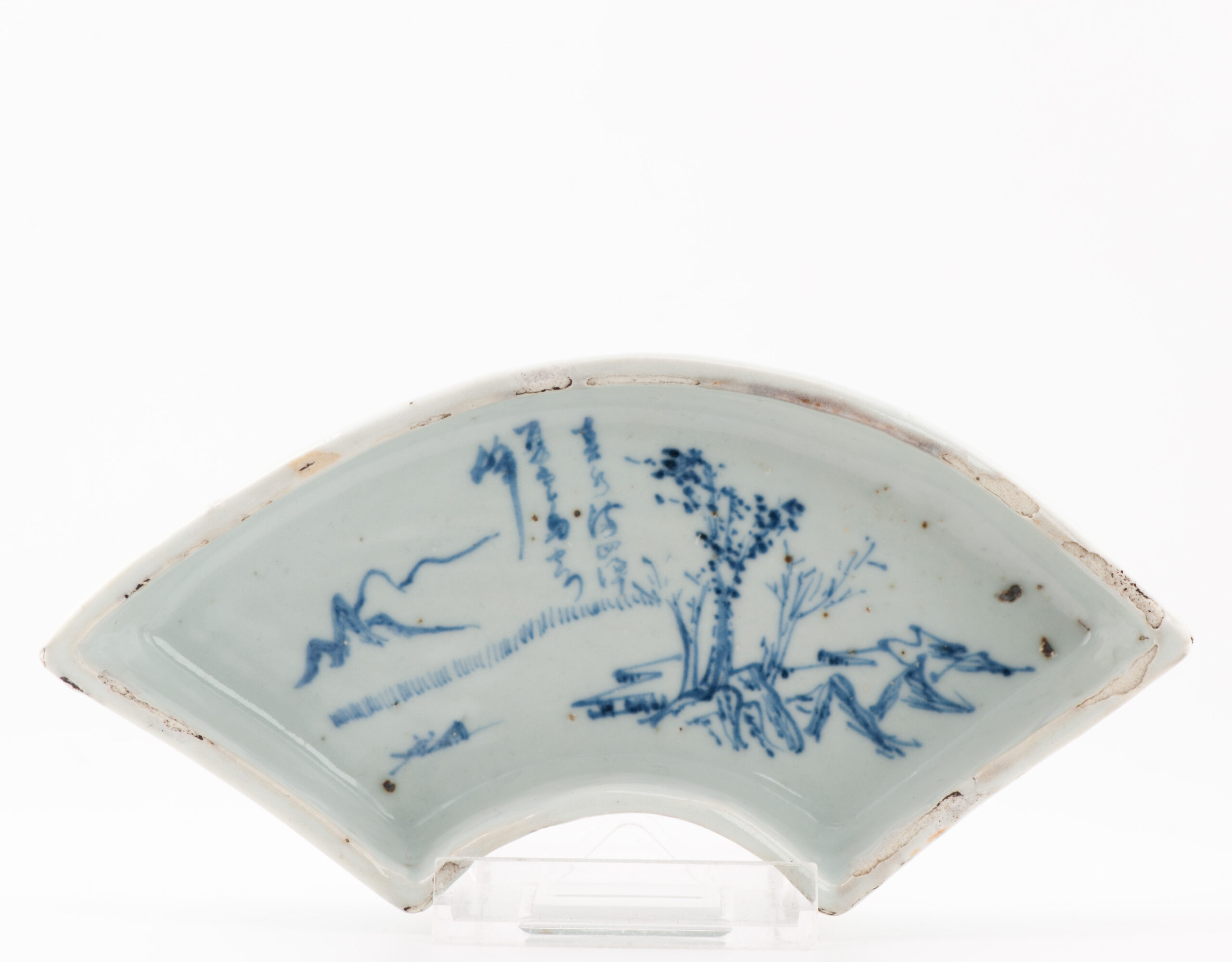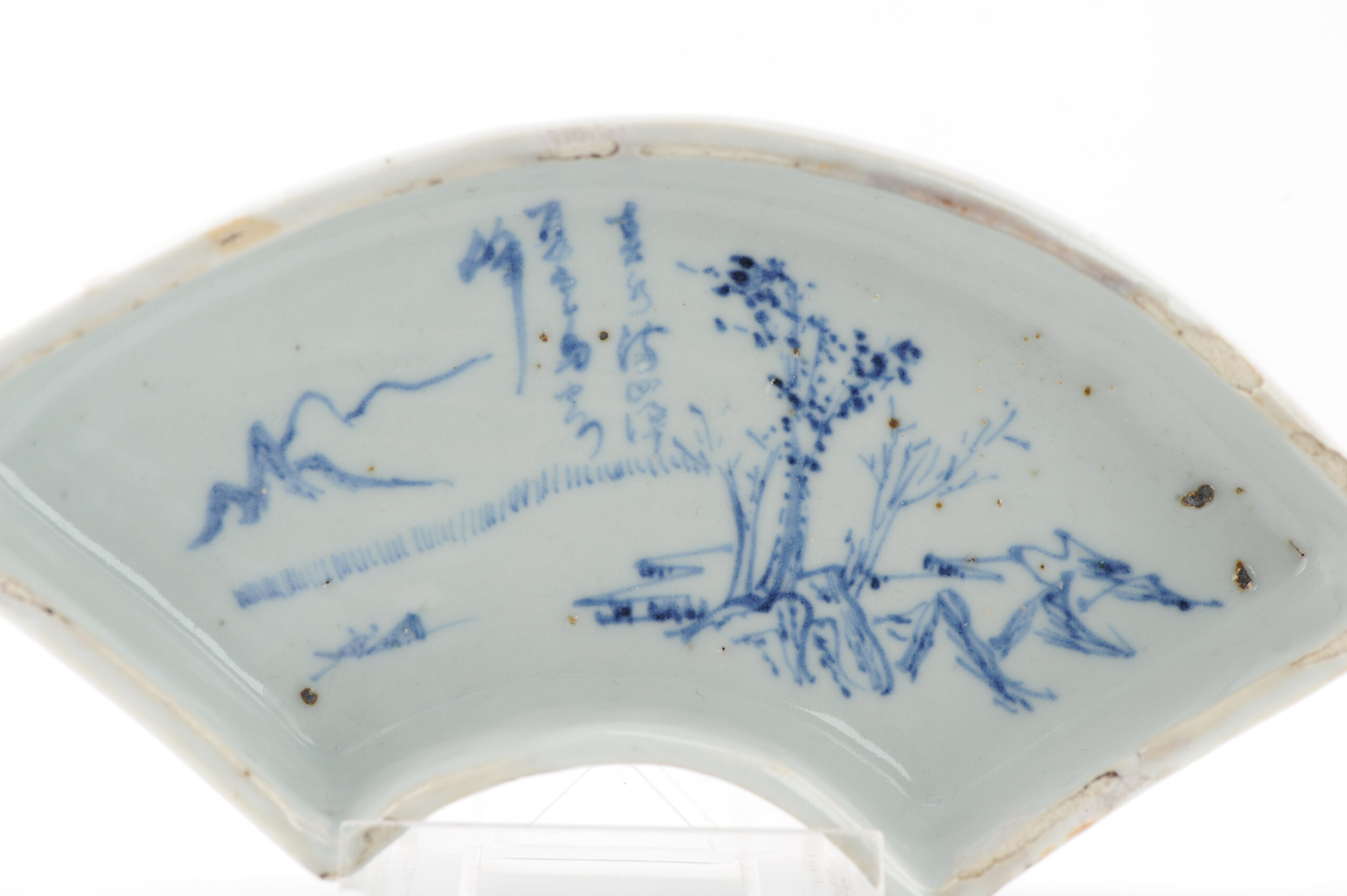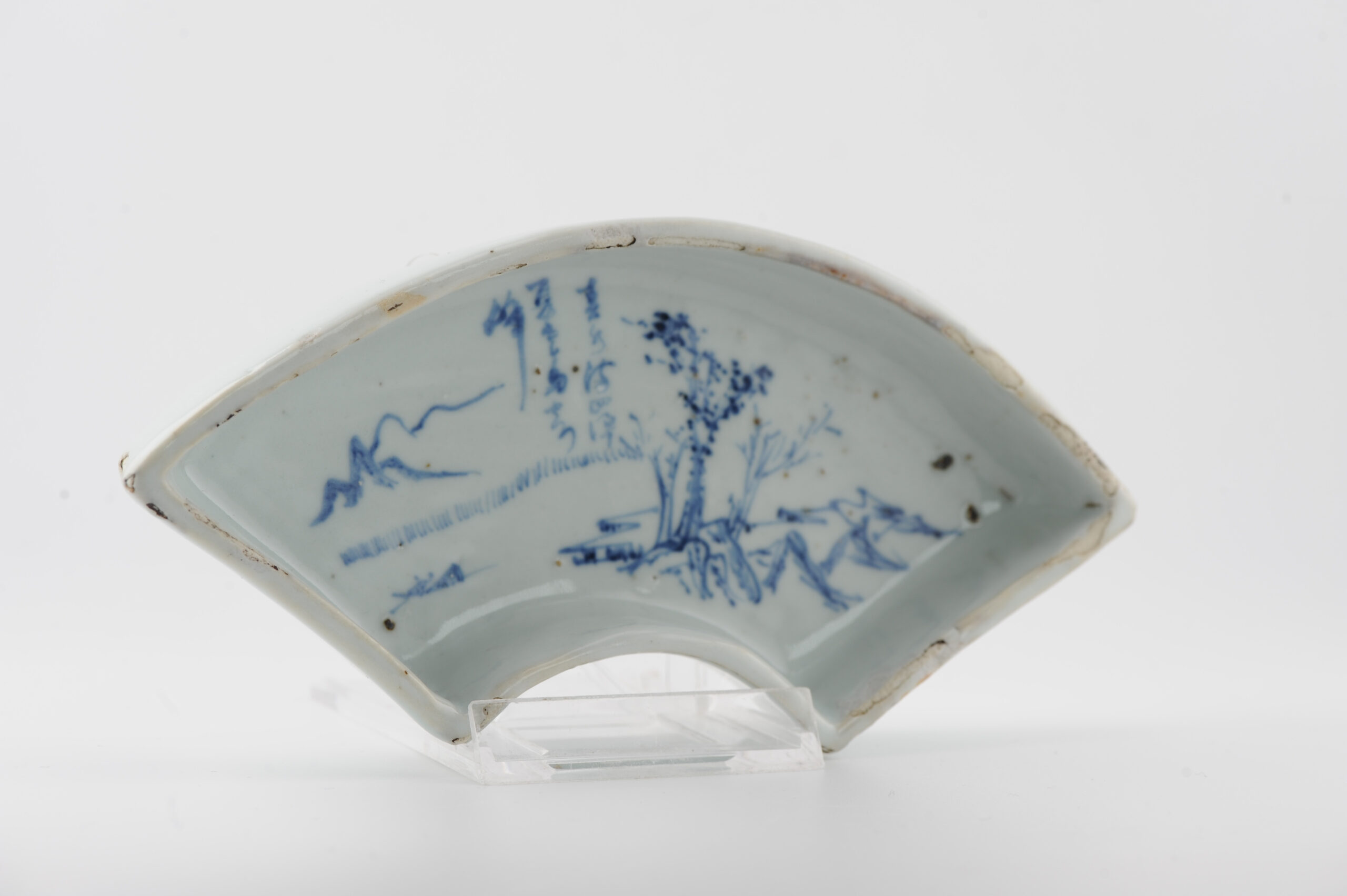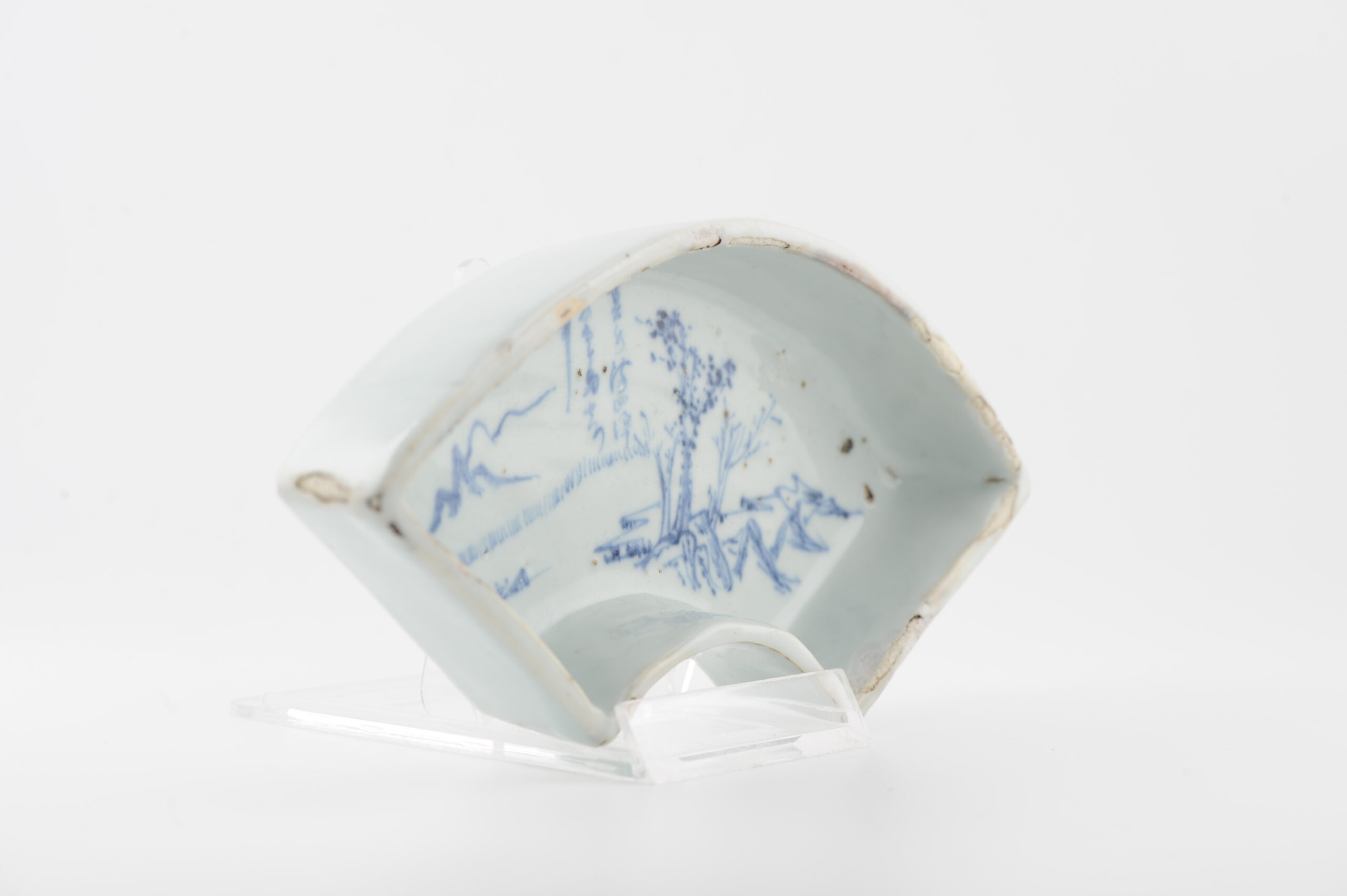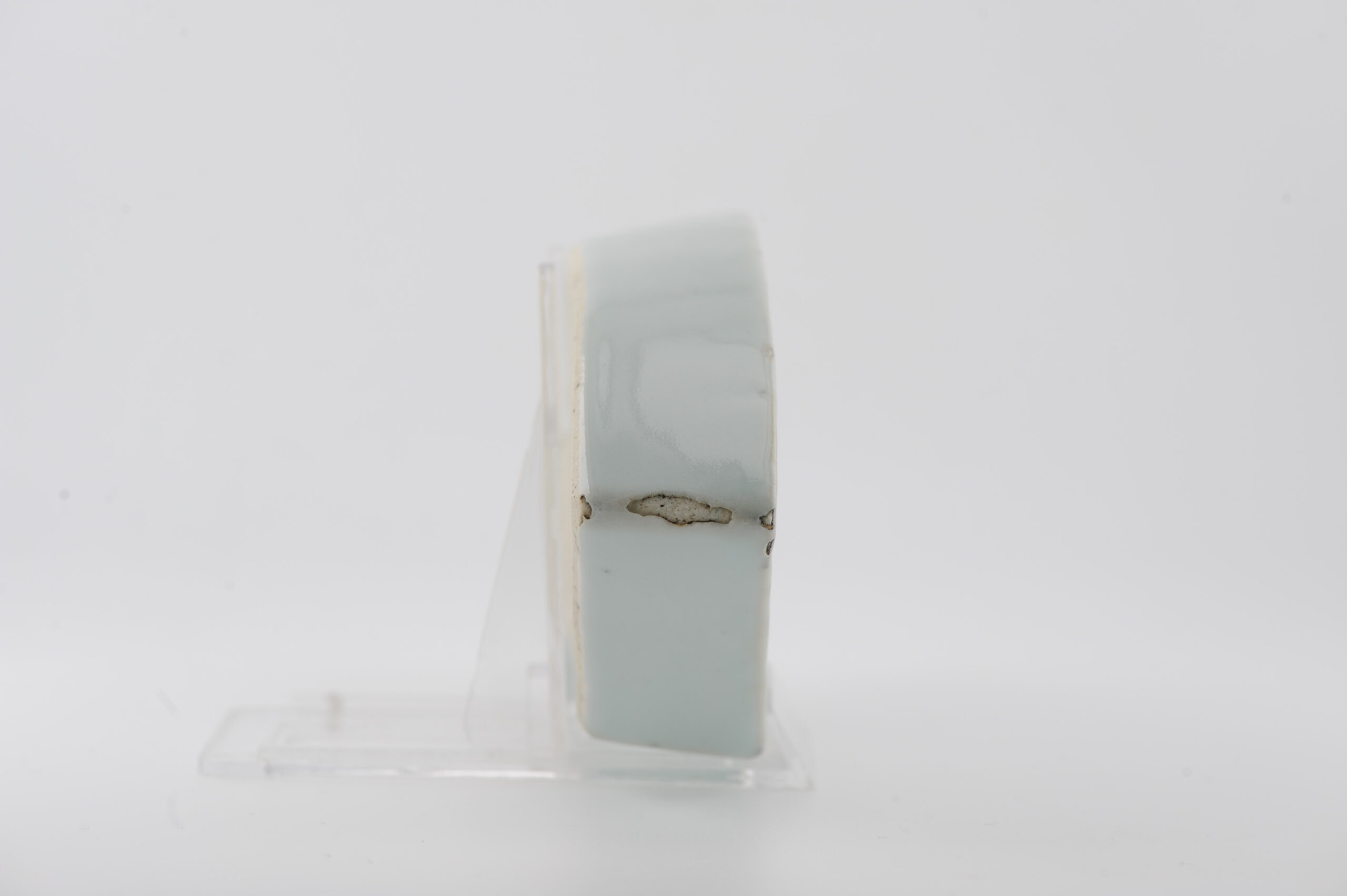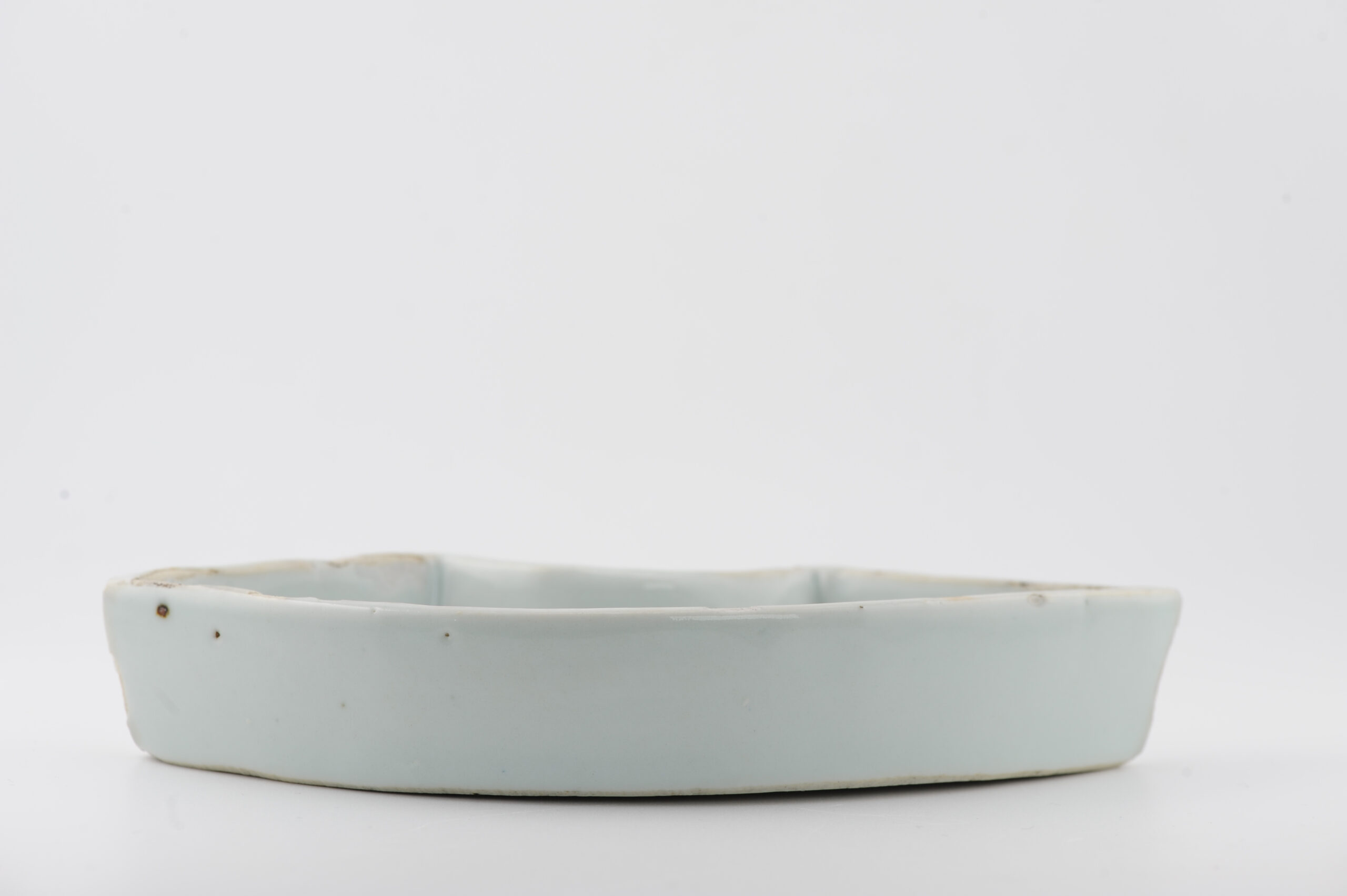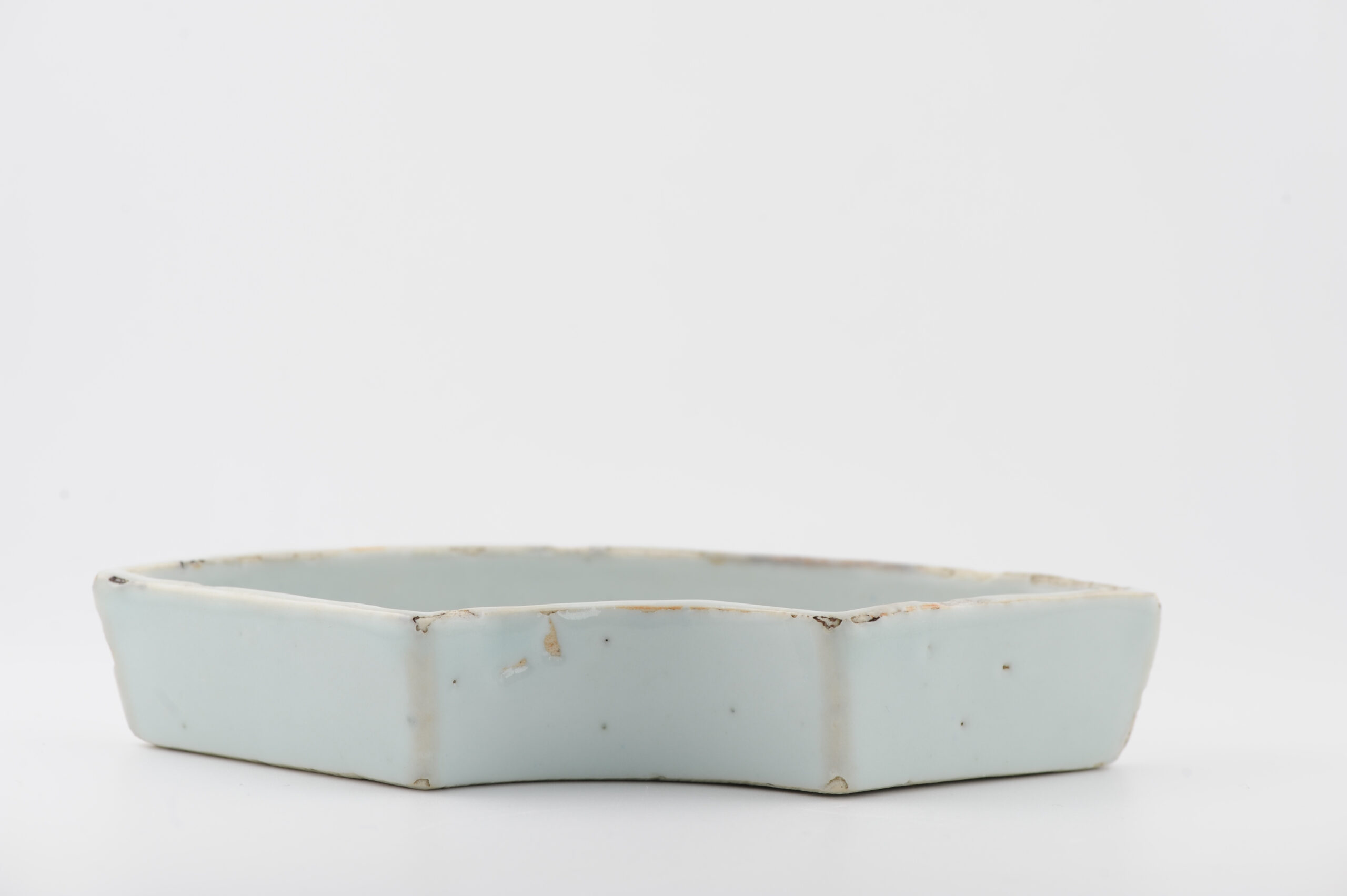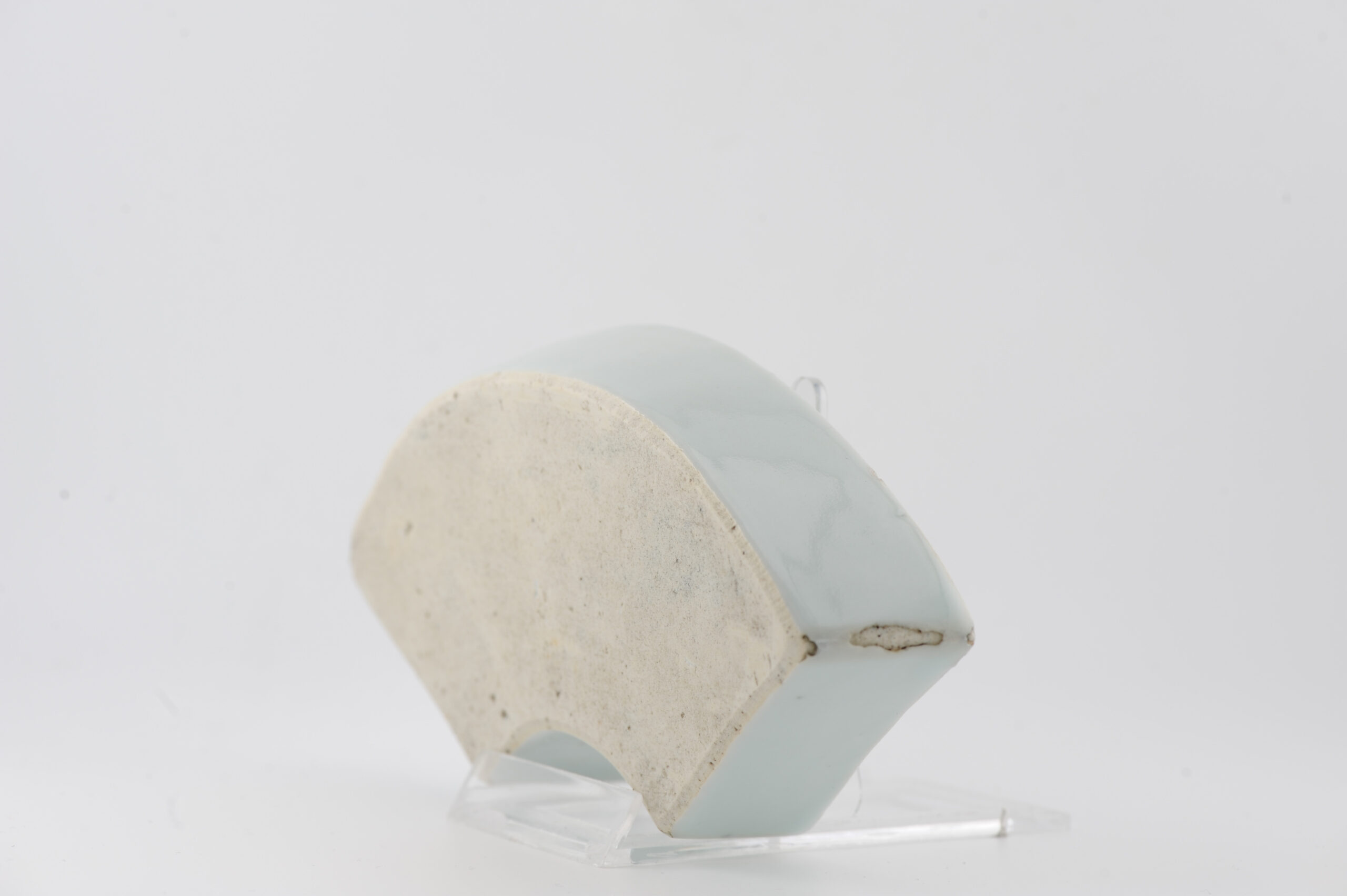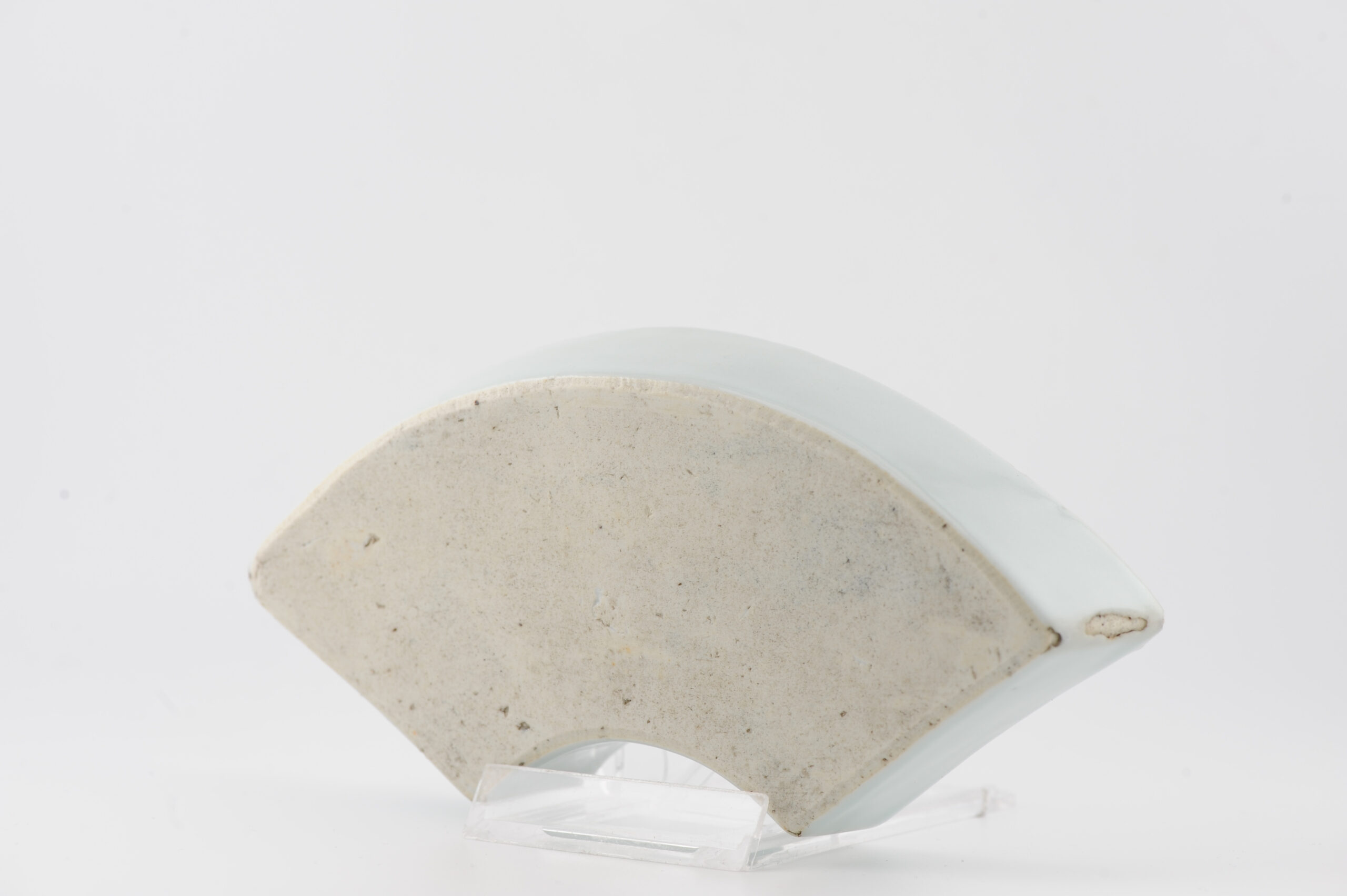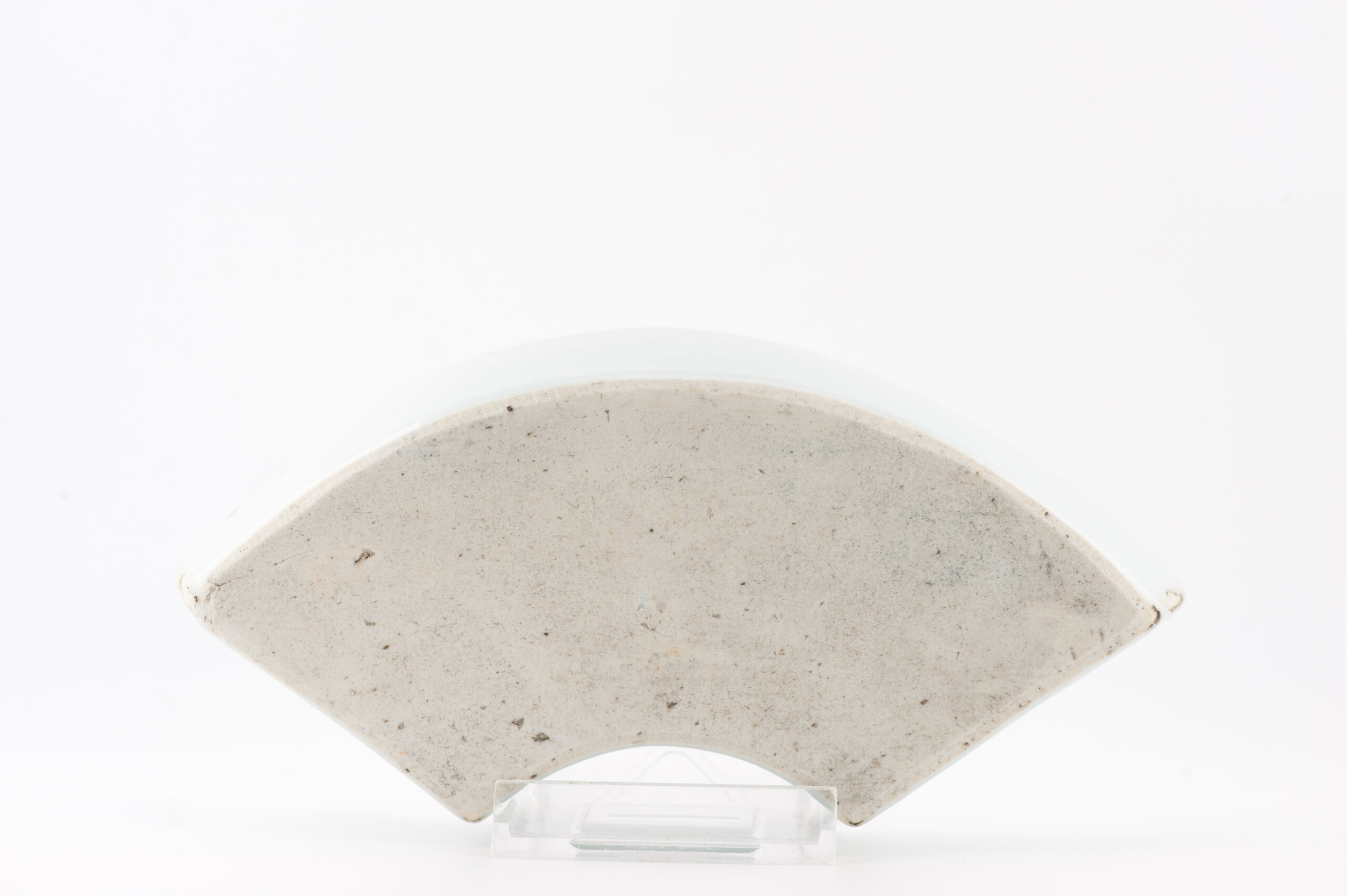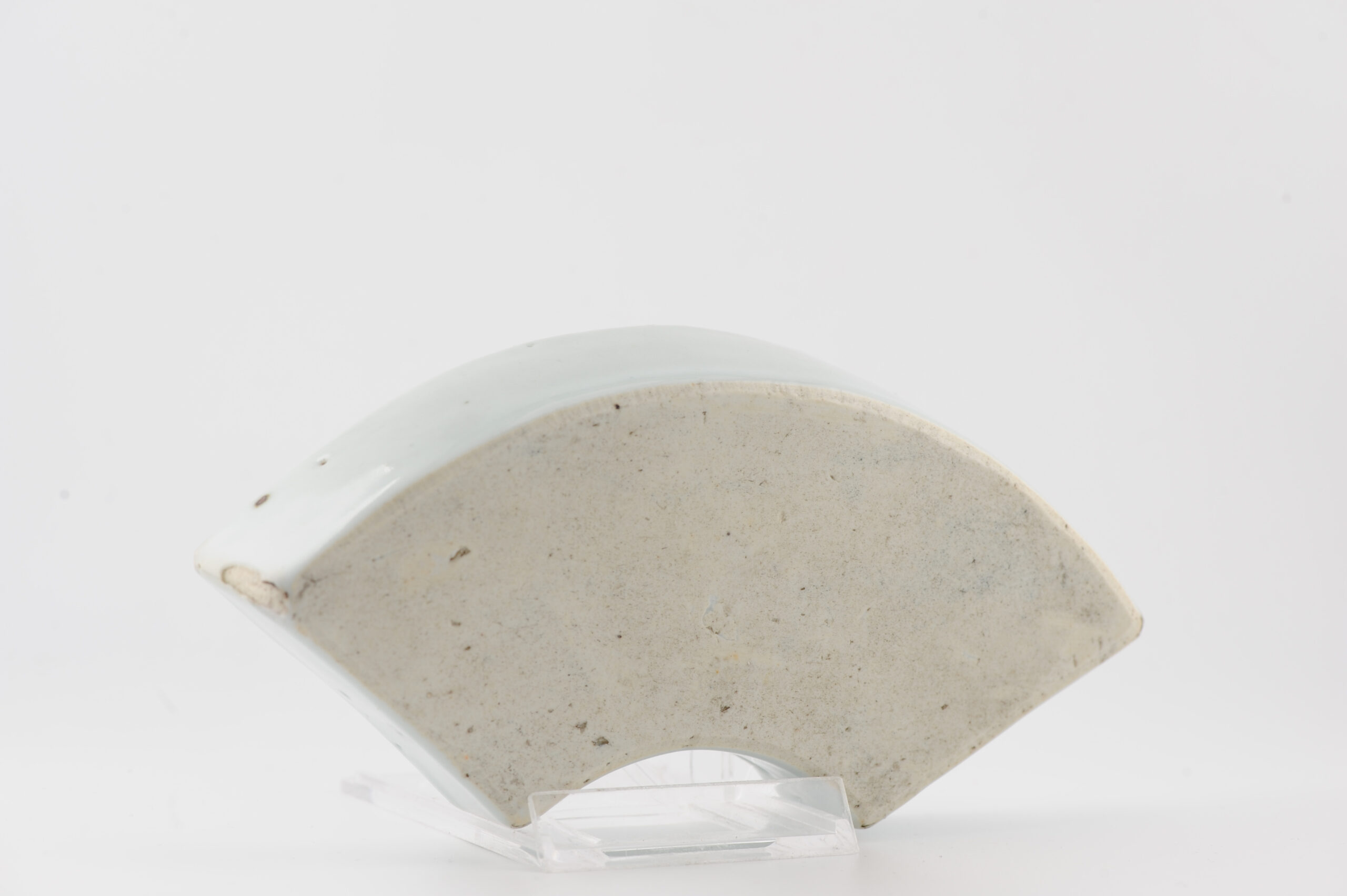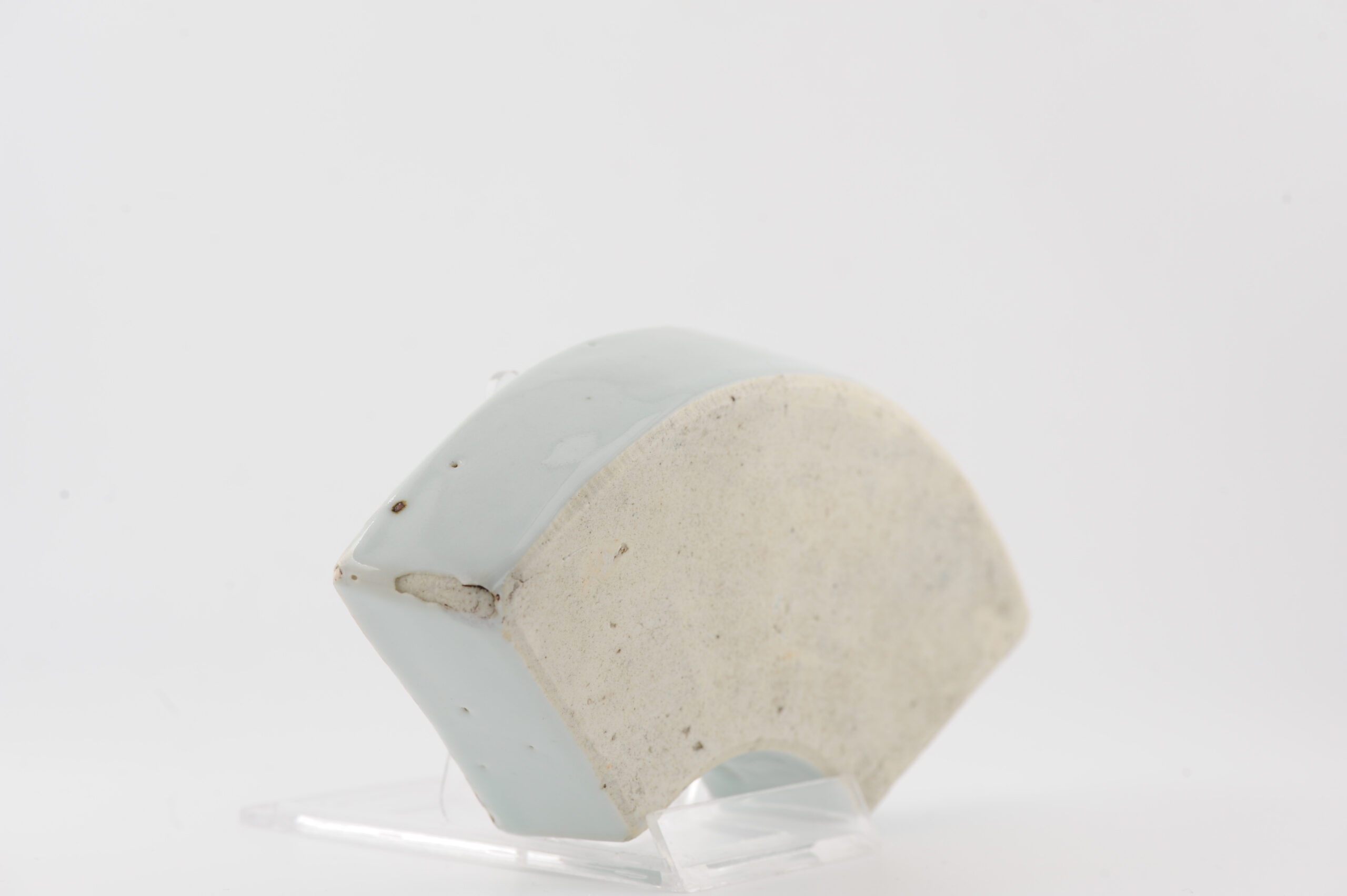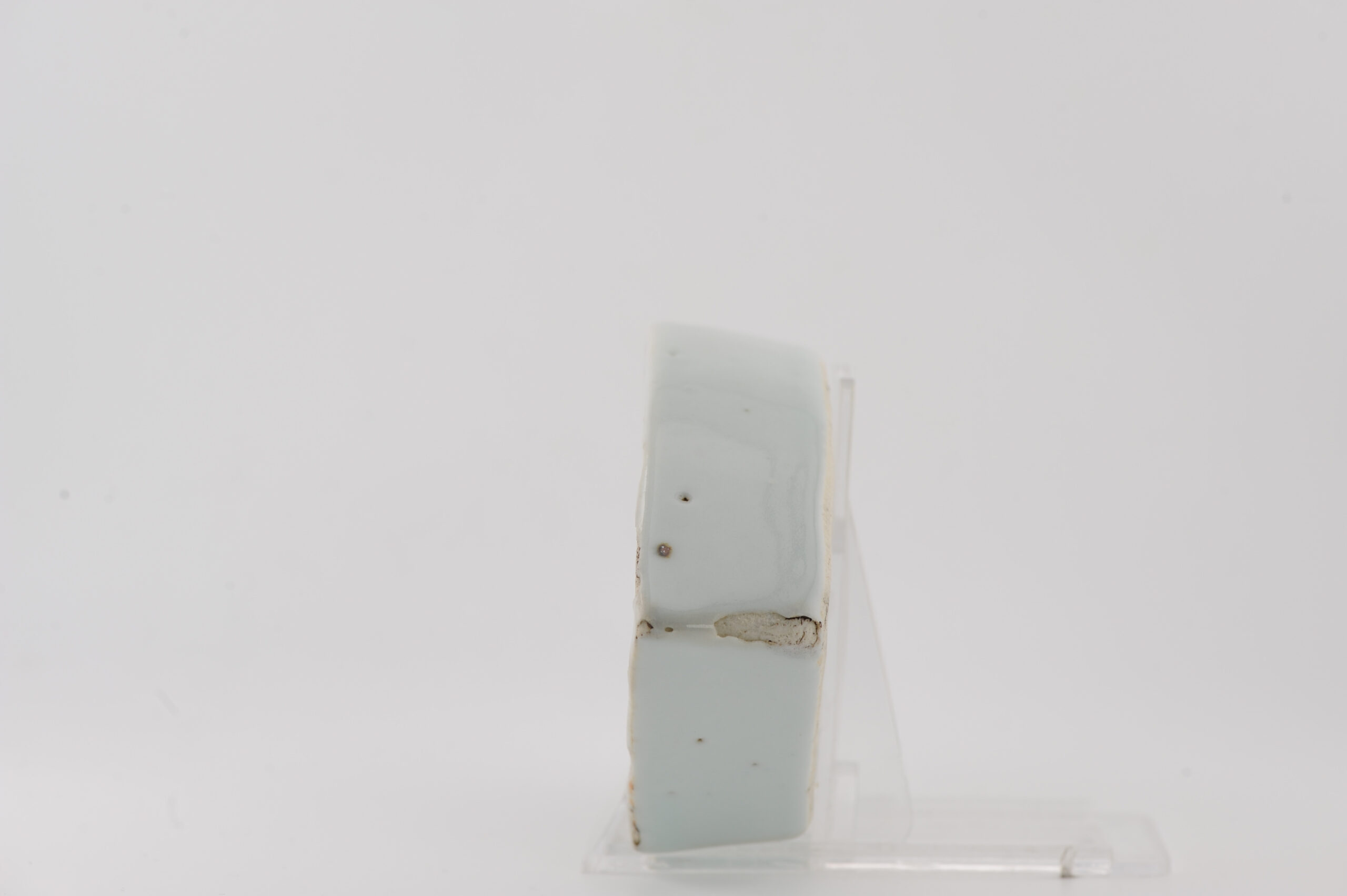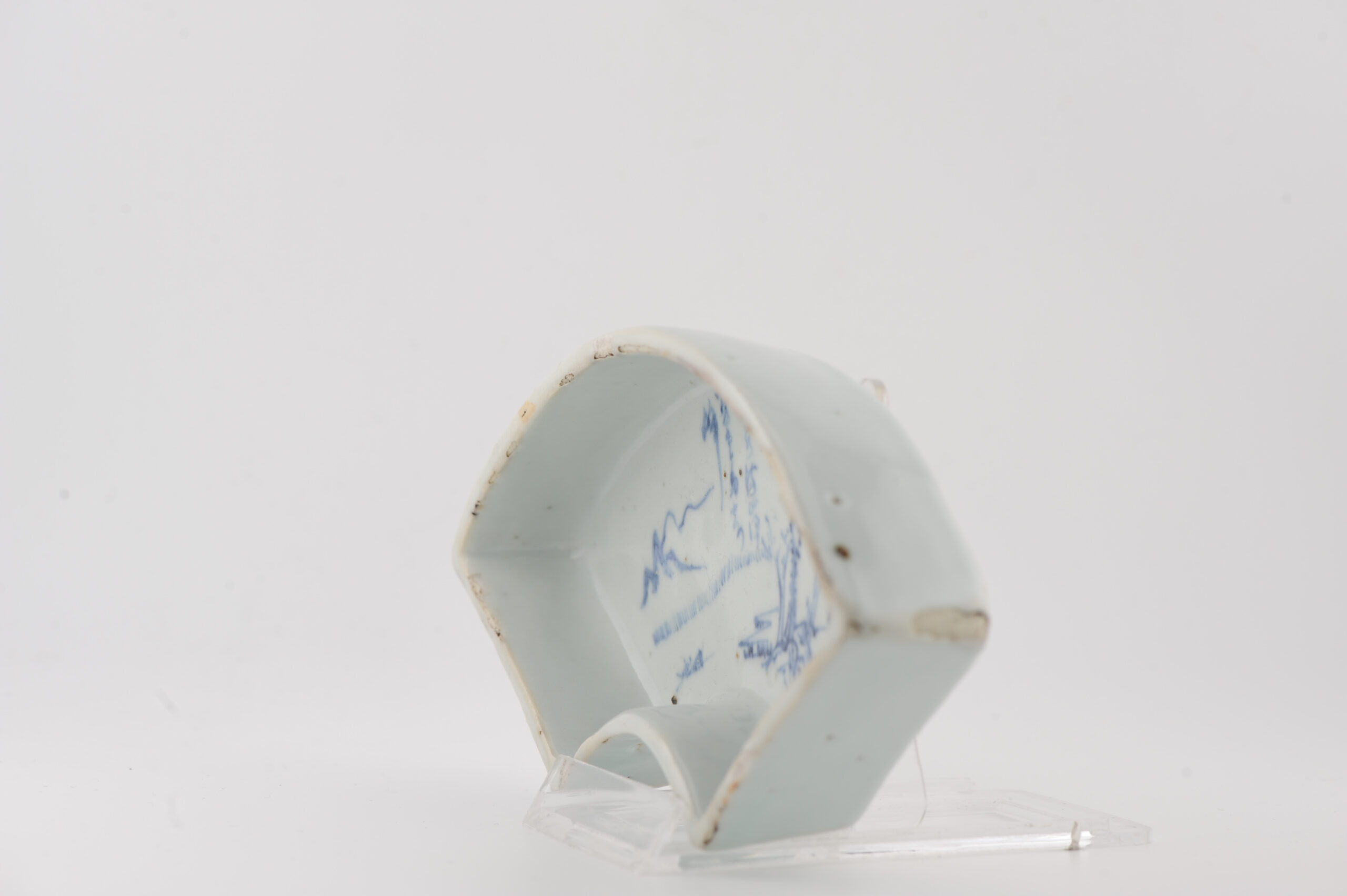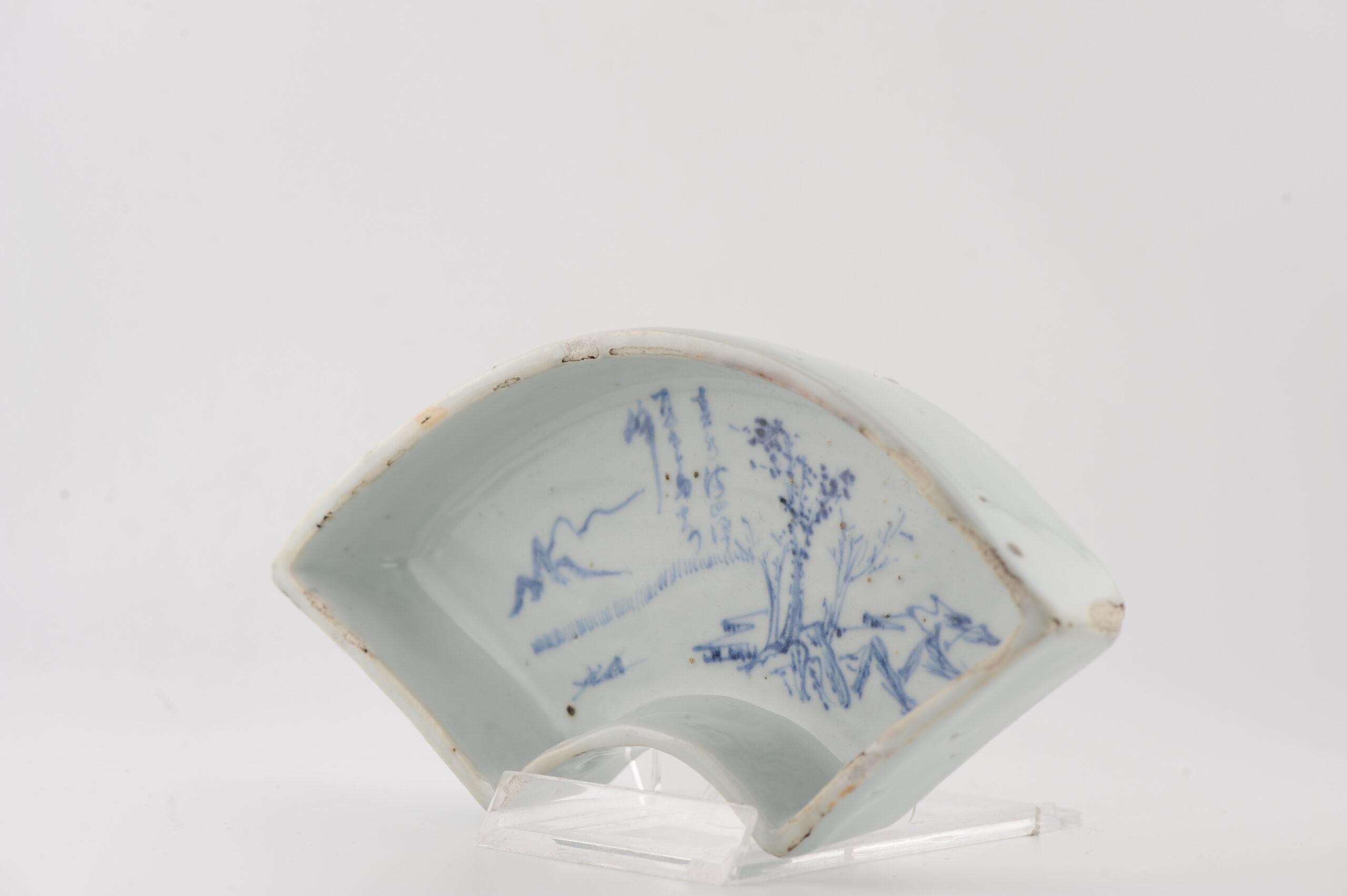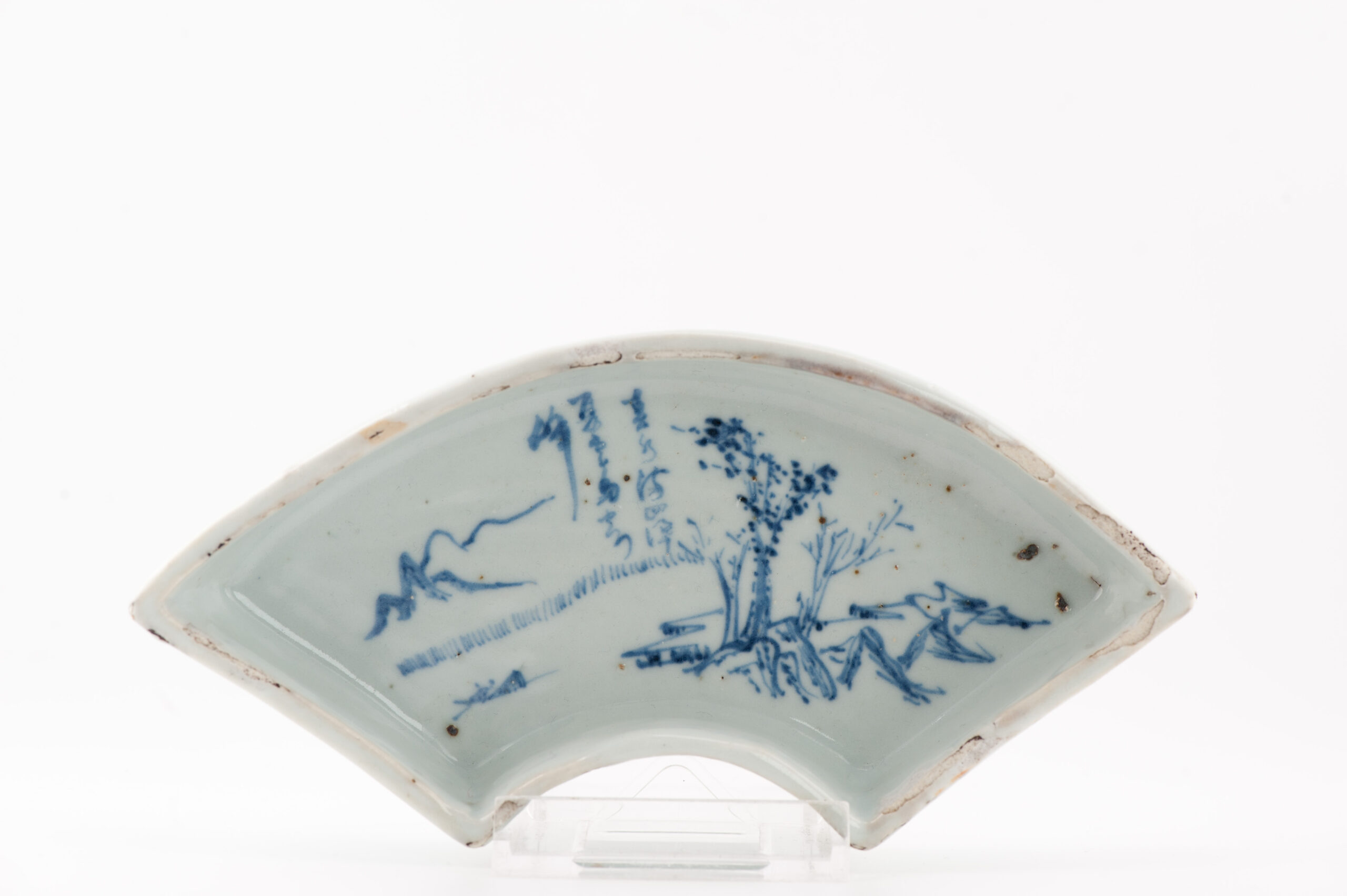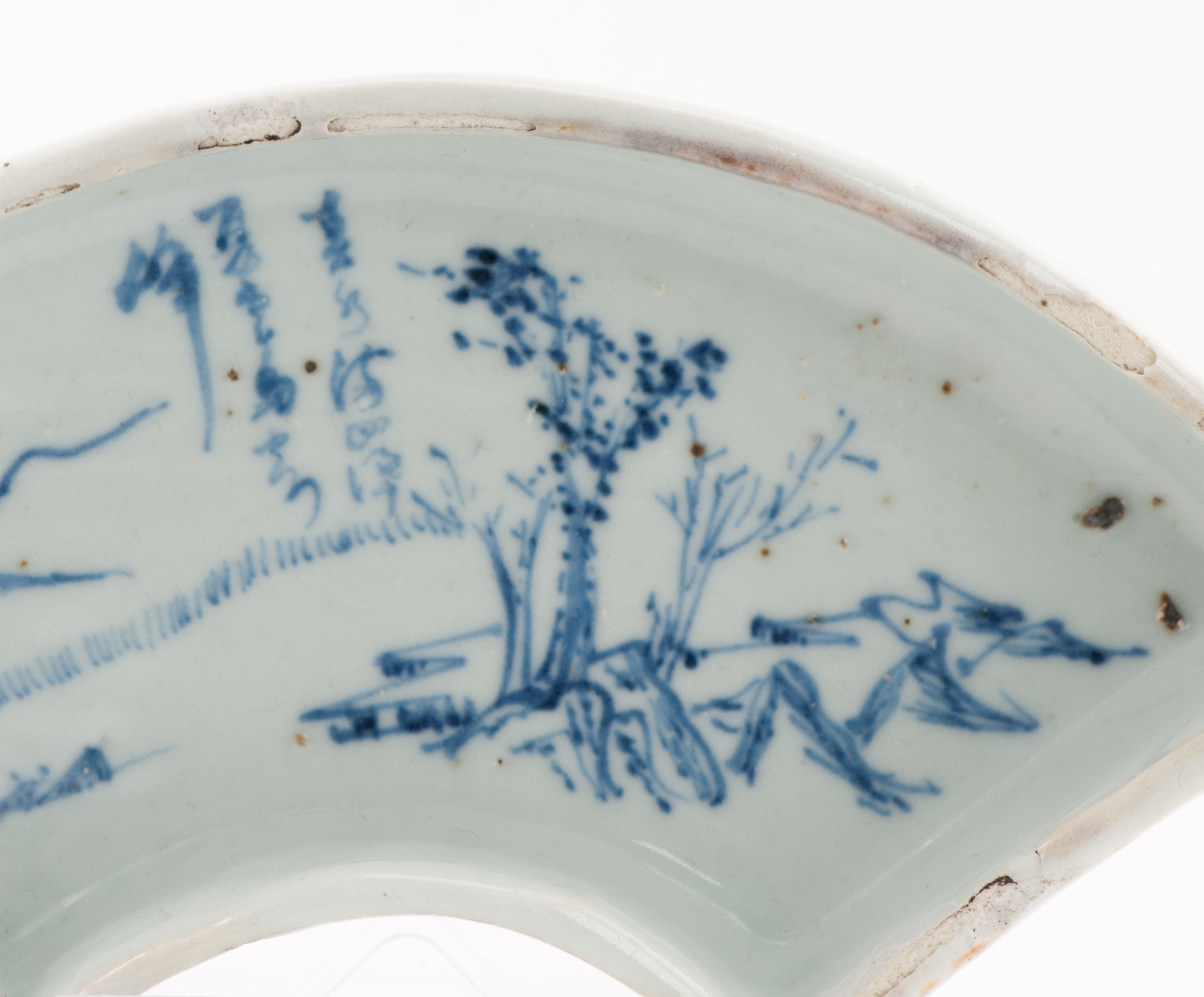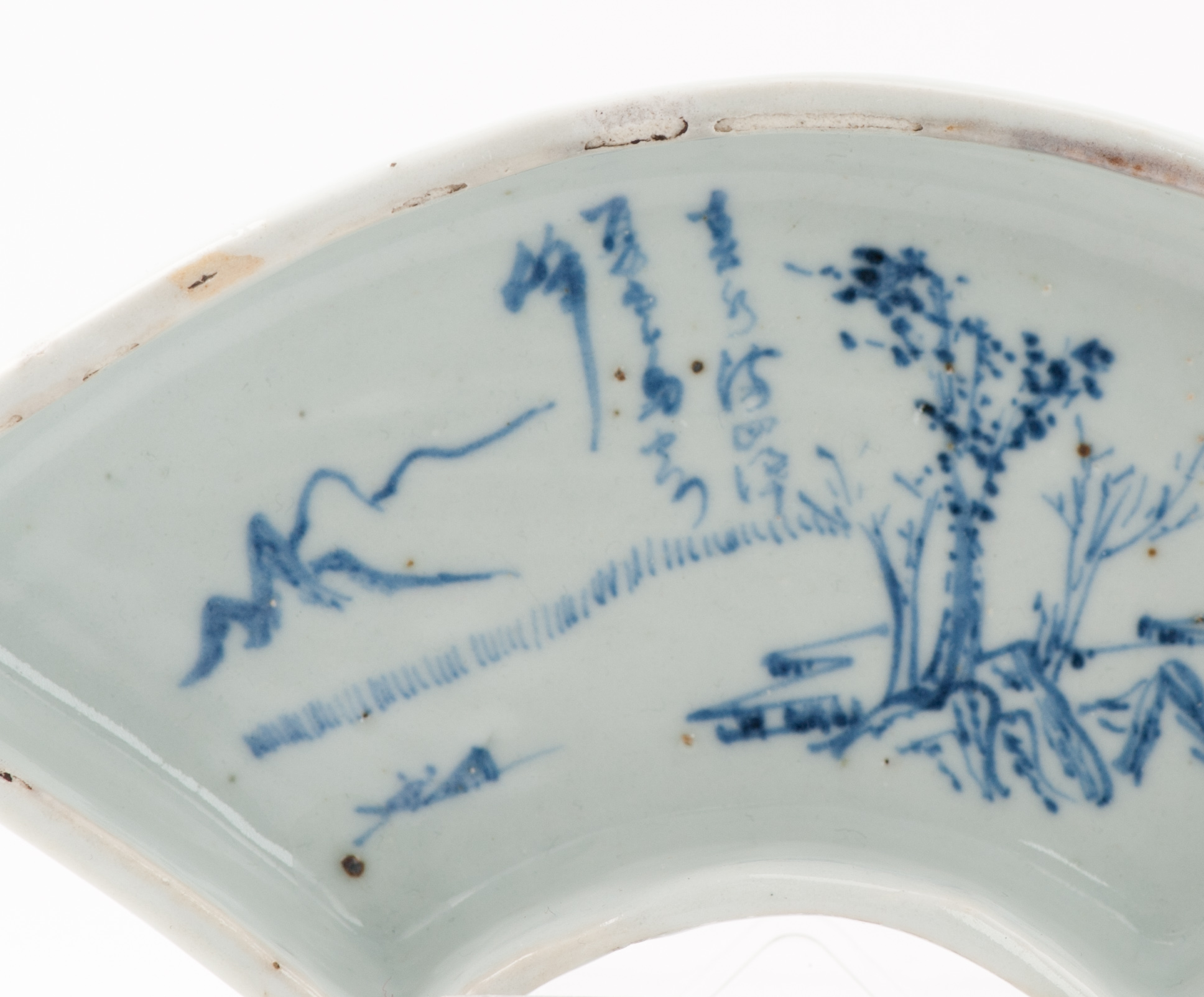1374 Antique Ming Period Xieyi Yuan Poem Landscape Chinese Porcelain Kaiseki Dish
Description:
1374 Antique Ming Period Xieyi Yuan Poem Landscape Chinese Porcelain Kaiseki Dish
Period: 1600-1640
Size: 17.5 x 9.5cm
Code: 750
Provenance: From a Japanese collection
See also 1373
A very nicely potted and painted blue and white Kosometsuke Kaiseki dish plate of a desirable cobalt blue! Stunning piece with design of a landscape in the style of the yuan painter Ni Zan with a Poem of Tao Yuanming. This dish is clearly related to the situation of the late Ming Literati and their situation in the decaying Ming Dynasty. The poem and painting symbolize reclusion from the turmoil of earthly existence.
These two lines are ‘春秀满四泽,夏云多奇峰’, which are from ‘Four Seasons’ by Tao Yuanming (365-427), a famous poet in the Jin Dynasty. Their meaning is: The spring water fills the fields and marshes. The clouds of summer change unpredictably, often rising abruptly like magnificent peaks.
Tao Yuanming (simplified Chinese: 陶渊明; traditional Chinese: 陶淵明; pinyin: Táo Yuānmíng; 365–427), also known as Tao Qian (pinyin: Táo Qián; also T’ao Ch’ien in Wade–Giles), was a Chinese poet and politician who was one of the best-known poets during the Six Dynasties period. He was born during the Eastern Jin dynasty (317–420) and died during the Liu Song (420–479) dynasty (Jin-Song transition). Tao Yuanming spent much of his life in reclusion, living in the countryside, farming, reading, drinking wine, receiving the occasional guest, and writing poems in which he often reflected on the pleasures and difficulties of life, as well as his decision to withdraw from civil service. Tao’s simple and direct style was somewhat at odds with the norms for literary writing in his time. In the Tang dynasty (618–907), he was well known as a recluse. During the Northern Song dynasty (960–1127), influential literati figures such as Su Shi (1037–1101) declared him a paragon of authenticity and spontaneity in poetry, predicting that Tao Yuanming would achieve lasting literary fame.
Through the history of the times, enough is known of the general state of affairs during Tao’s governmental career to indicate why such service during that sorry state of political affairs was so miserable for him: Tao Yuanming served under the two usurpers Huan Xuan and Liu Yu, not to mention the weak and pitiful emperor An.
The future emperor An of Eastern Jin (born 382 and personally named Sima Dezong) was a scion of the dynastic ruling family of the Jin empire, the Sima. His father was emperor Xiaowu, who named him crown prince in 387, despite his extreme developmental disabilities (being unable to dress himself, speak, or generally communicate). When Xiaowu was murdered in bed by his secondary wife, the Lady Zhang, An was crowned emperor in 397. Acting as regent, actual control of the empire was in the hands of emperor An’s father’s younger brother Sima Daozi. The regent, Sima Daozi, could dress himself and communicate verbally, but nevertheless was not that capable of a ruler, with a reputation for feasting and drinking rather than attending to affairs of state, and surrounding himself with flatterers. Various insurrections developed during the span of this corrupt and incompetent government, mostly unsuccessful, a state of affairs which did not change much when Sima Daozi’s son Sima Yuanxian succeeded as regent (an event reported to happening during a bout of drunkenness on the part of Sima Daozi). Eventually, the warlord Huan Xuan was able to consolidate enough power to seize the regency for himself. Huan Xuan was a kleptocrat, who found some way to seize whatever valuable objects or properties that he envied. Besides that, Huan had a habit of tyrannically punishing any official who made the slightest mistake or whom he was suspicious of. In 403, Huan had emperor An abdicate, so that he himself could be ruler both in fact and in name, and renamed his empire as the Chu dynasty. Shortly thereafter Huan Xuan was killed during the course of an uprising, in 404/405. The rebels then restored emperor An to his nominal position, and the empire’s name to Jin. The leader of the rebels was Huan Xuan’s general Liu Yu, who proceeded to rule as regent for emperor An. A typical pattern of external warfare and rebellions from within followed. In 418/419 Liu Yu had an assassin kill emperor An. Liu Yu installed An’s younger brother (Sima Dewen) as emperor Gong, with Liu Yu retaining the real power. Liu Yu then forced Gong to abdicate, and not long after had him assassinated. Upon Gong’s abdication, Liu Yu had himself named as Emperor Wu of Song, thus officially ending the Jin dynasty. This is the government in which Tao Yuanming served, and his poems portray his increasing discontent with doing so, whether or not he was really inclined to do so anyway is less clear (and he seems to have other personal, family reasons for his decision to resign). Nevertheless, after around a decade of service, Tao decided to leave the government and go back to his home region.
Tao Yuanming’s first stint in government was as State Officer of Rites, when he was about twenty-nine. He did this in part due to family poverty, and to support his aged parents. However, he had a difficult time of it and returned home. Accounts of Tao’s second and third government service stints vary somewhat. One source of information is A Year-by-Year Biography of Tao Yuanming by Lu Qingli. Tao’s second stint in government seems to have been working for Huan Xuan. According to Lu, Tao served in the government during the Long’an years of emperor An, during the time of the Sun En revolt. (Sun En seems to have been a populist magician associated with the Way of the Five Pecks of Rice movement.) Tao would have been about thirty-five years old, and the warlord Huan Xuan had become governor of Tao’s home province, Jiangzhou. Huan had a plan to coordinate with other warlords (including Liu Yu) to eradicate Sun En. Again according to Lu, Tao Yuanming was the official to go to the imperial capital, Jiankang, and officially submit this proposal to the imperial government. After receiving approval, Huan and associates successfully subdued the rebellion. Then, about three tears later, Huan Xuan and other warlords rebelled, and captured both the capital city and the emperor, An, and thus the imperial power. But by this time Tao Yuanming was working not for Huan but as Defense Strategist (apparently his third stint as a government official), handling paperwork for Liu Yu, the general in charge of defending the Sima-lead imperial government. There was also a fourth stint. When he was about forty, Tao worked for general Liu Jingxuan, who resigned about a year later, and Tao along with him. Tao Yuanming’s fifth and final stint, as Penze county magistrate (beginning March of the first year of the Yixing regnal year), only lasted about eighty days, as he resigned in August the same year. This was the time period when he wrote his essay “To Return”, in his preface to which he mentions taking the job because having “a house full of little kids”, and goes on to explain why he wants to give up government work and return home. Each stint seems to have lasted no more than a few years, and each time Tao Yuanming seems to have resigned and returned home. Officially, his retirement was due to the sudden death of his younger sister and his need to attend to the funeral rites. Another reason, given by his biographer Xiao Tong, was that Tao was faced with the imminent imposition of an onerous supervisor, whom he was told he “had to treat right”, and which was the occasion of him saying, “I won’t bow to a bucolic boy for the sake of five pecks of rice.” Subsequently, despite various offers by Liu Yu, after he became emperor, Tao Yuanming refused to return to government service. Of Tao Yuanming’s career Su Shi describe him as “working for the government when he desired to, without feeling shame in his requests; retiring when he desired to, without thinking himself lofty.”
Return to the fields
In the Spring of 405, Tao Yuanming was serving in the army, as aide-de-camp to the local commanding officer. The death of his sister together with his disgust at the corruption and infighting of the Jin Court prompted him to resign. As Tao himself put it, he would not “bow like a servant in return for five pecks of grain” (為五斗米折腰), a saying which has entered common usage meaning “swallowing one’s pride in exchange for a meager existence”. “Five pecks of grain” was among other things the specified salary of certain low-rank officials. Certainly Tao Yuanming’s salary as Penze County Magistrate was far higher than five pecks, so this was a symbolic expression. For the last 22 years of his life, he lived in retirement on his small farmstead.
Additional Information
| Type | |
|---|---|
| Region of origin | China |
| China dynasty period | Ming & Transitional (1368 – 1664) |
| Century | 16th century, 17th century |
| Decoration type colour | Amsterdam Bont, Blue & White, Ko-Sometsuke |
| Emperor | Chongzhen (1627-1644), Tianqi (1620-1627), Wanli (1572-1620) |
| Size | 15cm-18cm |
